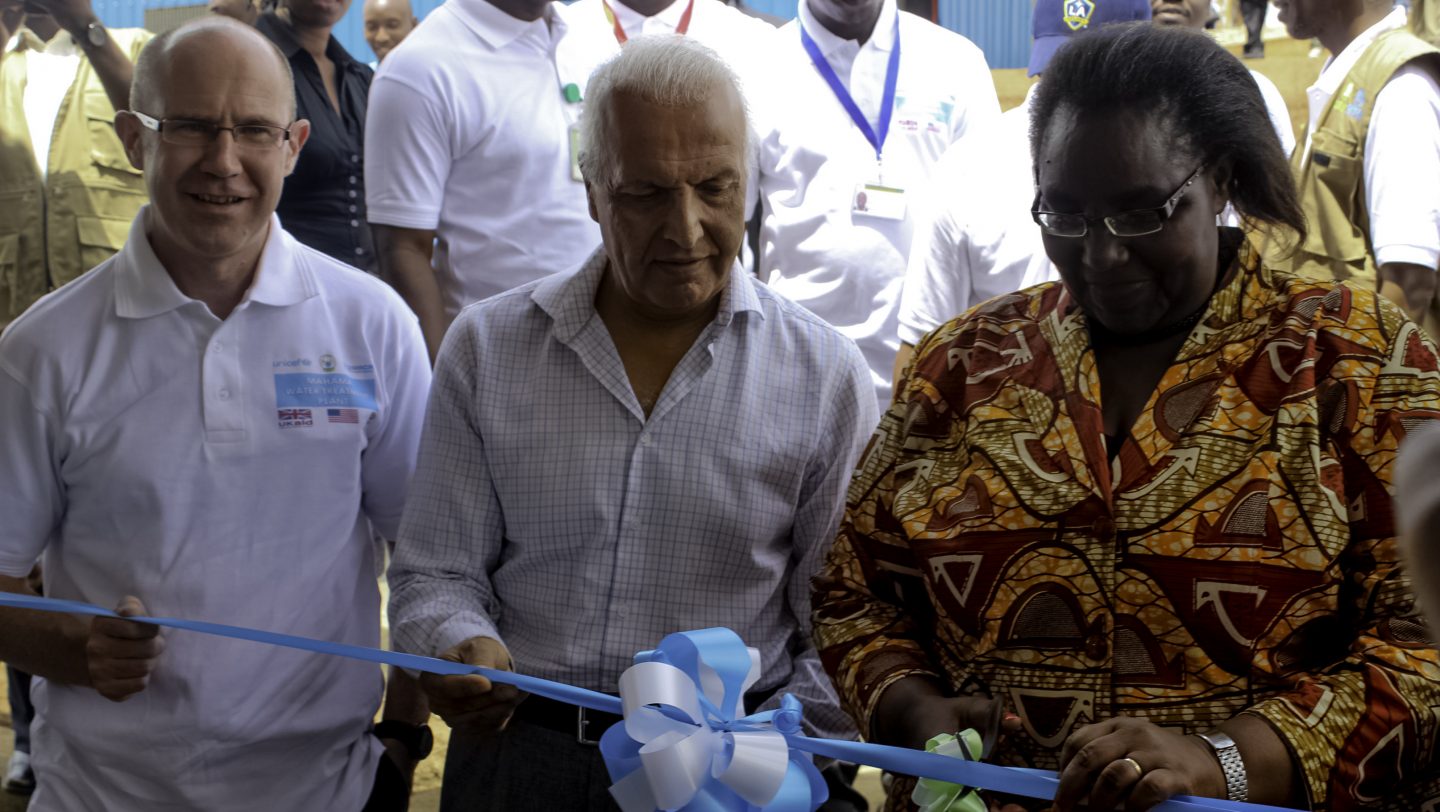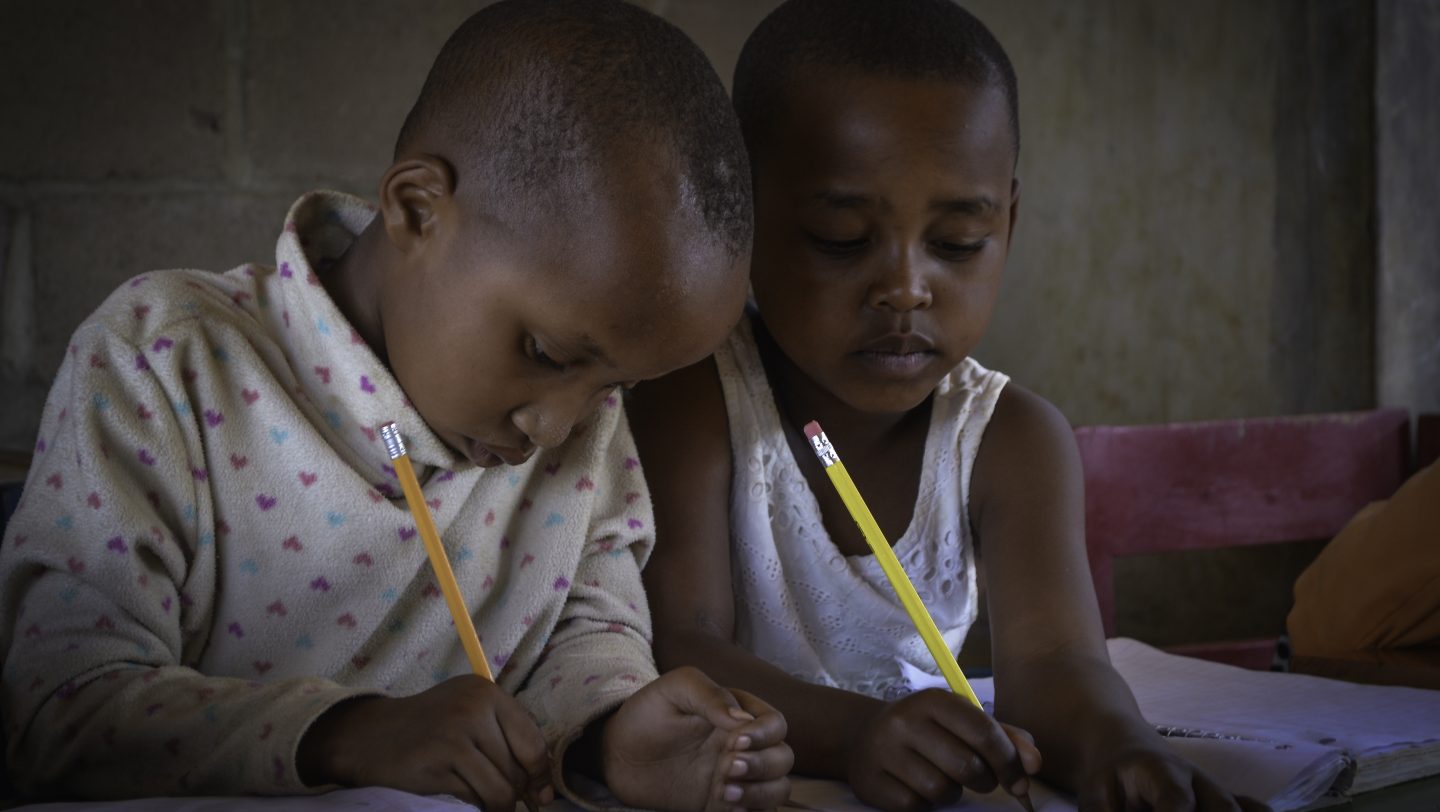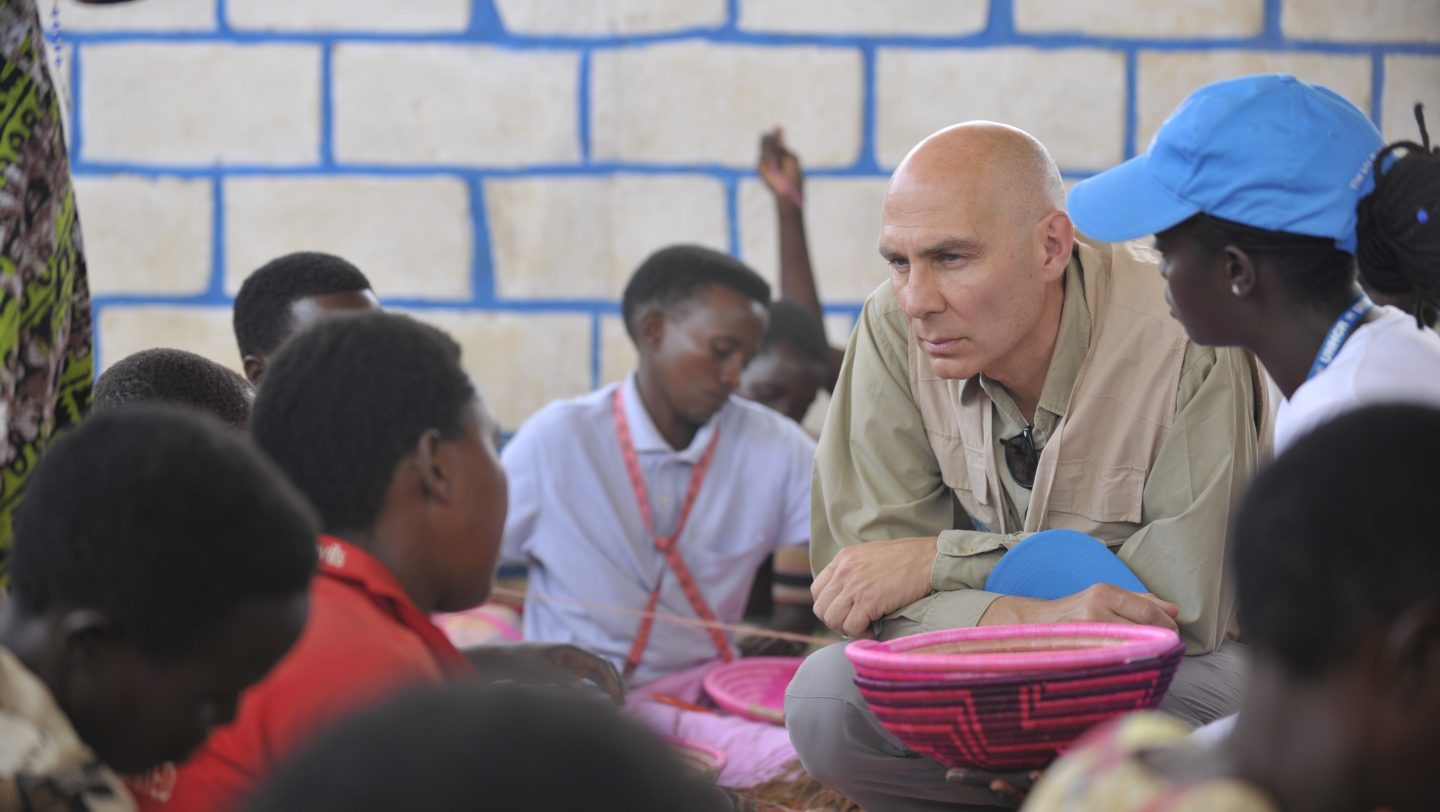IOC and UNHCR join forces to better protect refugee adolescents and young adults in Rwanda
International Olympic Committee (IOC) Honorary President and Special Envoy of UN Secretary-General Ban Ki-moon for Youth Refugees and Sport Jacques Rogge has pledged increased support for youth and sport projects
In Rwanda for a three-day humanitarian mission, International Olympic Committee (IOC) Honorary President and Special Envoy of UN Secretary-General Ban Ki-moon for Youth Refugees and Sport Jacques Rogge has pledged increased support for youth and sport projects in six refugee camps in Rwanda.
Following a day of meetings with the UN Refugee Agency (UNHCR) and the Government of Rwanda Ministry of Disaster Management and Refugee Affairs (MIDIMAR), which coordinate the refugee response in Rwanda, as well as a visit of the Kigali Memorial to pay tribute to the victims of the 1994 genocide, Rogge visited today Mahama camp. There he met many young refugees and their families and had the opportunity to watch a number of boys and girls take part in various sporting activities, from martial arts to basketball, sports activities for persons with disabilities, and volleyball games.
He was accompanied by the Minister of MIDIMAR Seraphine Mukantabana, the Representative of UNHCR Saber Azam, the President of the Rwanda National Olympic and Sports Committee Robert Bayigamba as well as young swimmer and Olympian, Pamela Girimbabazi.Rwanda is home to over 160,000 refugees, supported by UNHCR in the areas of legal and social protection, basic services including access to shelter, water and sanitation, health care, education, and basic infrastructures and supplies. The former IOC President took this opportunity to announce that the IOC and UNHCR are joining forces and launching a project to better protect refugee adolescents and young adults in Mahama and five other refugee camps (Gihembe, Kigeme, Kiziba, Mugombwa and Nyabiheke) in Rwanda, by offering them sport activities as a way of enhancing their protection.
“Sport has an incredible power and it can be so much more than a leisure activity,” Rogge said. “In such instances, sport can act as a social tool. Empowering youth and strengthening communities, it can contribute to protecting refugee adolescents and young adults from abuse, exploitation, neglect and violence.”
With a financial contribution from the IOC of close to USD 400,000, UNHCR’s project, which will run for a period of three years starting from 2017, will aim to rehabilitate sports grounds, introduce sports activities, raise awareness of the benefits of sport among the camps’ young people, their parents and the wider communities and train local youth as sports trainers to ensure its sustainability. It will aim to empower adolescents and young adults by enhancing their life skills and competences through structured sports activities; as well as use sport to enhance positive interactions and ensure a peaceful coexistence between refugees and the host communities. This initiative will be supported by the Rwanda National Olympic and Sports Committee which will provide technical expertise on the sports related aspects, as well as NGOs Plan International and Save the Children which will act as UNHCR’s implementing partners and provide expertise on the child protection aspects.
![Representative of UNHCR Mr. Azam Saber, Dr. Jacques Rogge and Minister Seraphine Mukantabana in a short conversation with the martial arts team (Karate/ Wadō-ryū) in Mahama refugee camp [Photo/ IOC Shaban Masengesho]](http://www.unhcr.org/rw/wp-content/uploads/sites/4/2016/06/rsz_1_10.jpg)
Representative of UNHCR Mr. Azam Saber, Dr. Jacques Rogge and Minister Seraphine Mukantabana in a short conversation with the martial arts team (Karate/ Wadō-ryū) in Mahama refugee camp [Photo/ IOC Shaban Masengesho]
On 9 June, the Special Envoy will conclude his Rwandan mission with a visit to Gihembe camp, home to over 14,000 refugees from the Democratic Republic of Congo, which will also benefit from the IOC’s support, as well as a visit to a school just outside of the camp, where he will watch a volleyball game between teams of Rwandan students and refugee students.
For the last 20 years, the IOC and UNHCR have been using sport to support healing and development among young refugees in many camps and settlements around the world. Following the approval of Olympic Agenda 2020, the IOC’s strategic roadmap for the future of the Olympic Movement, and in light of the current global refugee crisis, the IOC has created a special fund of USD 2 million to develop relief projects through sport in collaboration with NOCs around the world.
With the help of NOCs and the UNHCR, the IOC has also identified a number of athletes living in forced displacement, and is helping them through its Olympic Solidarity programmes to take part in the Olympic Games Rio 2016. As announced by the IOC last Friday ten athletes will compete for the Refugee Olympic Team – the first of its kind – at the upcoming Games.
The IOC is confident that this initiative will bring hope to the refugee athletes who wish to return to training and compete at the Games. It is also intended as a symbol of hope for all refugees around the world, which will help raise awareness of the magnitude of the crisis.
Learn more about the Refugee Olympic Team here and here.
UNHCR contact information:
- Martina Pomeroy, External Relations Officer, UNHCR
pomeroy@unhcr.org +250-78-830-2769 - Eugene Sibomana, Communications Associate, UNHCR
SIBOMANE@unhcr.org +250-78-888-4713
See also

Mahama: Burundian refugees get a New Permanent Water Treatment Plant

Early Childhood Development Programs in Rwanda’s Refugee Camps Help to Address the Psychological Impact of Forced Displacement

